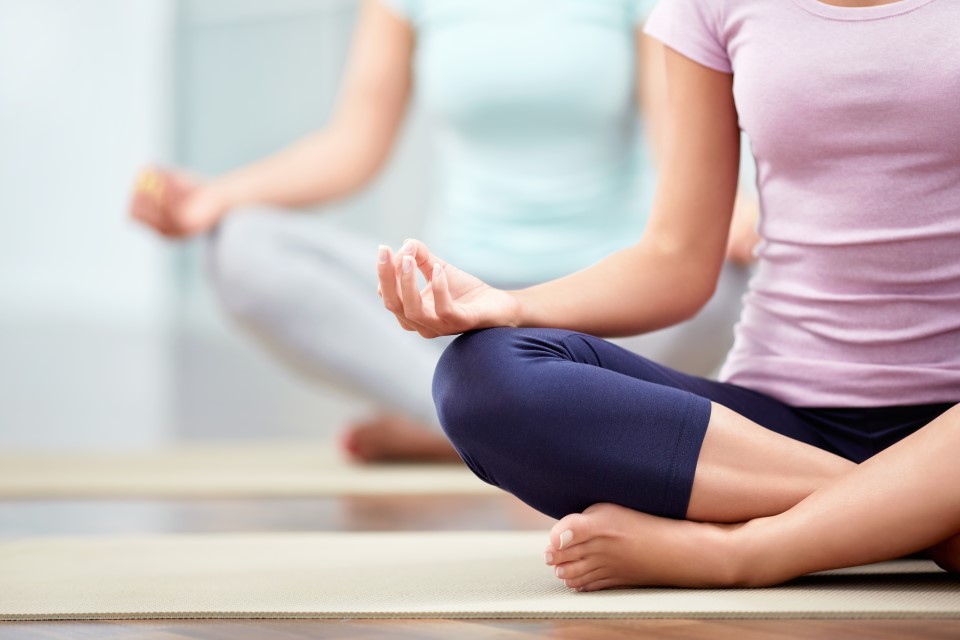I can honestly say that nothing I learned in treatment really prepared me for a pandemic.
And yet here I am, staring down empty grocery store shelves and self-isolation orders, wondering how I’m going to keep myself nourished when — truth be told — my anorexia seems all too eager to take the steering wheel and drive.
I know where that road takes us, though. (Spoiler alert: total misery.) It’s not exactly a place I’m eager to return to.
Having an eating disorder is hard enough on its own. And now that we’re in something of a global crisis? It can feel daunting to try to navigate recovery.
If you’re having a hard time with food or body image at this time, I want you to know that you’re not alone. Here are some important reminders to hold on to in the weeks to come.
1. It’s understandable if you’re struggling right now
When my eating disorder made a rather loud reappearance during self-quarantine, I had this sinking feeling that I was failing at my recovery. And I felt guilty, too. Was I really going to obsess about food at a time like this?
Eating disorders are mental illnesses, though. Which means when our routines are disrupted, we’re getting less sleep, encountering more stress, and are more isolated than before.
It makes perfect sense that we’d struggle more than usual.
There’s also a lot of new obstacles for us to navigate. Food is now less accessible than it was before (and less varied), and most of us have less in-person meal support around us. This really is the equivalent of battling our eating disorders on “hard mode.”
So, yes, if you’re having a hard time right now, that’s completely valid. You aren’t failing at recovery, nor is your recovery doomed because things are challenging.
Instead, we just have to adjust our expectations and keep the big picture in view.
2. Please don’t cut yourself off from support
Speaking of expectations, expect that you’ll need more support right now, not less. While it can be tempting to withdraw during a time of self-isolation, a quarantine can be incredibly damaging for your mental health and recovery.
Apps like FaceTime and Marco Polo allow you to stay connected by video and can be great options for accountability and meal support.
But if you don’t have folks in your life who are ED-informed, you still have options:
- NEDA has also put together a video series for COVID-specific coping tools, including this video with Jennifer Rollins, MSW, LCSW, discussing recovery during a pandemic.
- There are also a lot of great smartphone apps that can be helpful tools in recovery for you. I’ve also included some of my favorites in this roundup.
- There’s an Instagram, @covid19eatingsupport, that offers live meal support every few hours!
3. Aim for C-level work
Perfectionism in recovery is never helpful, especially not now. My dietitian Aaron Flores often reminds me to aim for “C-level work.” I’ve found the analogy to be really grounding for me.
Not every meal is going to be perfectly “balanced.” Sometimes your snacks will just be whatever you can find in the cupboard or whatever you can tolerate. Sometimes our meals are going to look a little strange because it’s what we could find in the freezer section of the liquor store.
That’s OK. That’s normal.
C-level work means, yes, stocking up on nutritional shakes if those are helpful in keeping yourself alive right now. It might mean calling on others to grocery shop for us if we feel stuck. It means settling for “good enough” when our ED brains are telling us it’s not.
And it definitely means being flexible around our food choices. We’re living in a very different world than the one we did just a few weeks ago.
The important thing right now is survival and staying nourished as best you can (we’re aiming for three meals per day plus two to three snacks — rinse, repeat). The rest we can put on a shelf to worry about later, on the other side of this.
4. Your body knows what to do in a crisis
There are a lot of “jokes” going around on social media about the weight people might gain in quarantine. In addition to that being fatphobic, it also completely misses the point.
Your body’s only real job is to help carry you through each day and signal to you what you might need to move through it with as much ease as possible.
There’s a pandemic happening. The stress is literally palpable and unavoidable.
So if you find yourself craving certain foods right now? That’s your body seeking out richer energy sources to do its job.
If you do end up gaining weight? That’s your body adapting to protect you, should you get sick and be unable to properly nourish yourself later on.
And if you’re “stress eating” or seeking out comfort foods? That’s your body using food as a way of self-soothing — which can serve an important purpose.
Your eating disorder (and sadly, our culture at large) may want to demonize these experiences. But especially given the circumstances? They’re all very, very normal experiences to have with food.
Humanity has survived plagues and pandemics throughout history, thanks to our resilient, adaptable bodies. The last thing we should be doing is punishing them for protecting us.
5. Recovery still matters
I know a lot of us may find ourselves sinking into despair. “If the world is falling apart anyway,” you might be wondering, “why should I even bother?”
(Hey, just so you know, that right there is called depression, my friend. If you’ve got a mental health provider on your care team, it’s a good time to reach out to them.)
Yes, the future is profoundly uncertain right now. What we’re experiencing is unprecedented in a lot of ways. Feeling fearful and even hopeless in the face of a literal pandemic makes a lot of sense.
Not knowing your experience, I can’t tell you how to feel or react to this outbreak. But for me, as horrific as it’s been, this moment has shifted my priorities so rapidly.
When I think about all the time that was stolen from me by my eating disorder, and I think about everything that could happen in the weeks to come? I’m reminded that there isn’t any more time to waste.
There are so many things I took for granted that feel more important than ever before: connecting with loved ones, my morning walk to the train station, feeling the sun on my face, stopping by the local doughnut shop and really tasting my food.
All of this is precious. And it can be taken from us in the blink of an eye.
And of course that matters. Especially now.
This moment won’t be forever. I can’t tell you how long it will be, but as with anything else, we can be certain that all things come to an end.
And I believe there’s a Future You who will be grateful for your resilience in this moment.
Because there are people who we love and will need us, some we haven’t even met yet. And there’s a future where we all have to rebuild. I want us each to have a hand in making it a better one.
I know it’s hard right now. But for what it’s worth, I believe in you. I believe in all of us.
We’re going to take this thing one bite at a time. And thankfully? We get as many “do-overs” as it takes.
Sam Dylan Finch is an editor, writer, and digital media strategist in the San Francisco Bay Area. He’s the lead editor of mental health and chronic conditions at Healthline. Find him on Twitter and Instagram, and learn more at SamDylanFinch.com.
Source: Healthline



